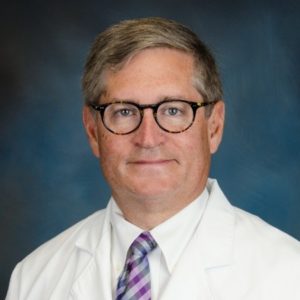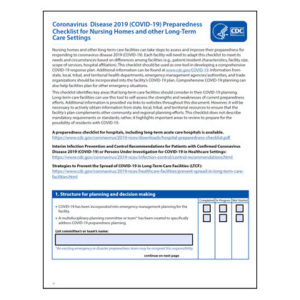What Senior Care Facilities Need to Know About the Delta Variant

Dr. Ernst von Schwarz, MD, PhD, medical director, Southern California Hospital Heart Institute
As COVID-19 has mutated, the Delta variant has emerged as a more infectious and faster-spreading form of the virus. The CDC reports that the Delta variant is the predominant strain in the United States, and that it may cause more severe illness than previous COVID-19 strains.
Understanding the Delta Variant
Dr. Ernst von Schwarz, MD, PhD, FESC, FACC, FSCAI, is the medical director of the Southern California Hospital Heart Institute. As a cardiologist, scientist, and researcher based in Los Angeles, he has treated many patients with COVID-19. Dr. von Schwarz explains just why the Delta variant is so easily transmissible.
“The details of mutations are often in the core of the virus where there is usually the exchange of a few amino acids which determine the surface antigens,” he says. “That makes any mutant or variant live better and longer.
“In general, a mutation is an adjustment, an adaptation of the virus towards the more hostile environment. The idea and goal of the virus is to survive. If cells appear hostile to the virus, the virus will adjust and adapt. That adaptability is a survival mechanism, since minor changes in the surface of the virus can lead to major changes in the functionality and survivability of the virus.
Everyone Will Probably Get the Virus at Some Point
“In the case of Delta, those changes enable the virus to penetrate living cells much more easily compared to the original form. The increased permeability of cellular membranes makes it highly transmissible. Some researchers believe – and I’m one of them – that probably everyone will get it. There’s no way to prevent you from getting the virus.”
Though the Delta variant is highly transmissible, everyone who gets it won’t necessarily get sick. Dr. von Schwarz notes that the vaccines can prevent people from getting severe disease, having to be hospitalized, or even from dying. “But they don’t prevent us from getting the virus or spreading the virus,” he adds. “The best protection is to maintain social distance, wear masks, and get vaccinated.”
Breakthrough cases of disease and symptoms in people who are vaccinated do occur, but Dr. von Schwarz notes that they are rare. “We do see breakthrough cases, but if you look at the total number of breakthrough cases, it’s low. Death totals [among the vaccinated are] 0.0001%.”
How to Prepare Your Senior Care Facility for the Delta Variant
The Delta variant is more transmissible and can cause more severe symptoms than the original COVID-19 strain, meaning it poses increased risk to senior care facility staff and residents. Facilities that have started to allow social gatherings and visitation again may need to rethink these decisions.
“I think that it is, and was, too early to open everything up,” says Dr. von Schwarz. “We’re not over the pandemic.” Masks and other mechanical barriers remain important in helping to prevent the transmission of the Delta variant, but it’s also essential to understand that this variant is much more easily spread.
“I think there should be restrictions like mask mandates, social distancing, and limitations of visitation rights. On the other hand, I’m against no visitation, because we went through that in the hospitals. There was nothing worse than seeing people dying in the hospitals and loved ones who couldn’t be at their bedside. Visitation rights should be limited to one person at a time.”
While vaccines offer protection against severe symptoms, breakthrough cases are still possible, and it’s essential to stay aware of the variant’s risks. IASC will continue to bring you updated guidance about the Delta variant as it becomes available.

Paige Cerulli is a contributing writer to i Advance Senior Care.
Related Articles
Topics: Advocacy , Clinical , Featured Articles , Infection control , Risk Management









